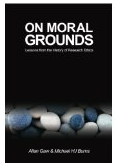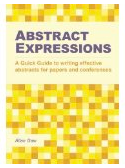Once a tower rose above an ancient city and pierced the clouded heaven. But, the God of the Old Testament divided the people who had built the tower and separated them by misunderstanding and confusion of language. Never again would one people share a common tongue and their city would become known forever as Babel, or confusion. Thus, the book of Genesis tells the story of how humanity fractured and how we arrived in the land of linguistic chaos that we now inhabit.
I am reminded of all this by a package that has just arrived by courier containing the Indonesian translation of my textbook on Clinical Biochemistry. It was the second in as many weeks and the previous one was the Albanian translation. The book was originally written (in English) in 1995 and my co-authors and I have just completed the fifth edition, which we hope to see published later this year. But, as well as the various editions and printings we now have no less than nine translations of the book on our shelves.
The first translation was into Japanese and came shortly after the first edition of our book was published. At the time, this was both surprising and exciting. In particular, I wondered how our names would look transliterated into Japanese characters. When the authors’ copy arrived I was disappointed to see that, while the text and the title had been translated, our names had not and they stuck out like rather throbbing thumbs on the book’s cover that was otherwise adorned by the exotic.
Next were the Spanish and Portuguese editions. Translating a book into Spanish I could understand – it seems as if half the world speaks Spanish, but Portuguese? Then I was reminded that half of South America, namely all the inhabitants of Brazil, speak Portuguese as well as those from Portugal itself and suddenly I could see the market.
But, if it’s markets you want the next translation would surely have the biggest of all -Mandarin Chinese. I walked around with that one under my arm for a few days, casually leaving it on desks and coffee tables. “Oh, did I leave the Chinese translation of my book…so sorry.”
But, my favourite was the next: Greek – the language of Achilles. This was the one that thrilled me the most and proved to be the most fun. As many of the words we use in science have their origins in Greek, albeit the Ancient variety, I was intrigued to see how these words would be reclaimed by the beautiful script. As many Greek letters are well known to scientists it was an intriguing exercise to decode some of the title pages to discover that they were virtually identical to their anglicised equivalents, at least in sound.
The French and Italian translations were next and were never going to be as exotic and inaccessible as the others, but again even though the words were more familiar, the books as a whole were not. Translation does many things: it may connect you with an entirely new audience for you work, but it simultaneously separates you from your own work. You may be sitting in the cinema of literature trying to put your arm around your reader only to find a translator in the seat between you both.
And, so we come up to date with Albanian and Indonesian editions. Now, I don’t know about you, but of all the possible translations you might expect of your work these two came as a surprise to me. In addition, of all the translations I have only ever been contacted by one translator to ask for advice and clarification. That was the Albanian translator who would send me fraught e-mails seeking resolution of small points of meaning that he and his team had already sweated over. I had always believed translation to result in a loss of meaning and blunting of subtlety. However, if this much effort went into the other translations perhaps I shouldn’t be so worried about their veracity.
As for the Indonesian, that also presented a bit of a puzzle. As I understand it there are many languages spoken in the fourth most populous nation on Earth. Indeed the peoples of the Indonesian archipelago speak around 700 languages, so which, I wonder, is our book written in? The official Bahasa Indonesia I suspect, which is apparently a modified form of Malay, but written in a Latin script. I say that as if I know what I’m talking about, but of course it’s just Wikipedia talking.
Looking through a book that you have written but being unable to read or even recognise a single word is disconcerting, but oddly pleasant. That the translation might not say anything you have written certainly occurs to you, but as you have no way of knowing you can do nothing but sit back and enjoy the unfamiliar words and characters. The books just sit as curiosities of our shelves occasionally to be wheeled out to impress the very young or the very old.
Lacking any linguistic skills beyond school French, a little German and a smattering of holiday Spanish and Italian I am not best placed to comment on the quality of my translations. I suppose I have that in common with most authors who have seen their words recarved into new and often more interesting shapes. However, if those new shapes can bring new readers, then my ignorance hardly signifies. It is a great privilege to be published in one language; to be able to speak to half the world is nothing short of a miracle.
Thus, Babel now sits on my bookshelf, a testament to our cultural fragmentation as a species. Our languages divide us and simultaneously enrich us. We are, I believe greater for our differences and stronger because of our diversity. Perhaps that was the point of Babel all those years ago – not the action of a vengeful God, who sought to divide and conquer, but rather an act of beneficence seeding our cultural diversity. That we should keep translators in business and provide authors with exotic trophies for their shelves seem nothing more than amusing side-effects of a much grander strategy.
© Allan Gaw 2013
My books available on kindle:









